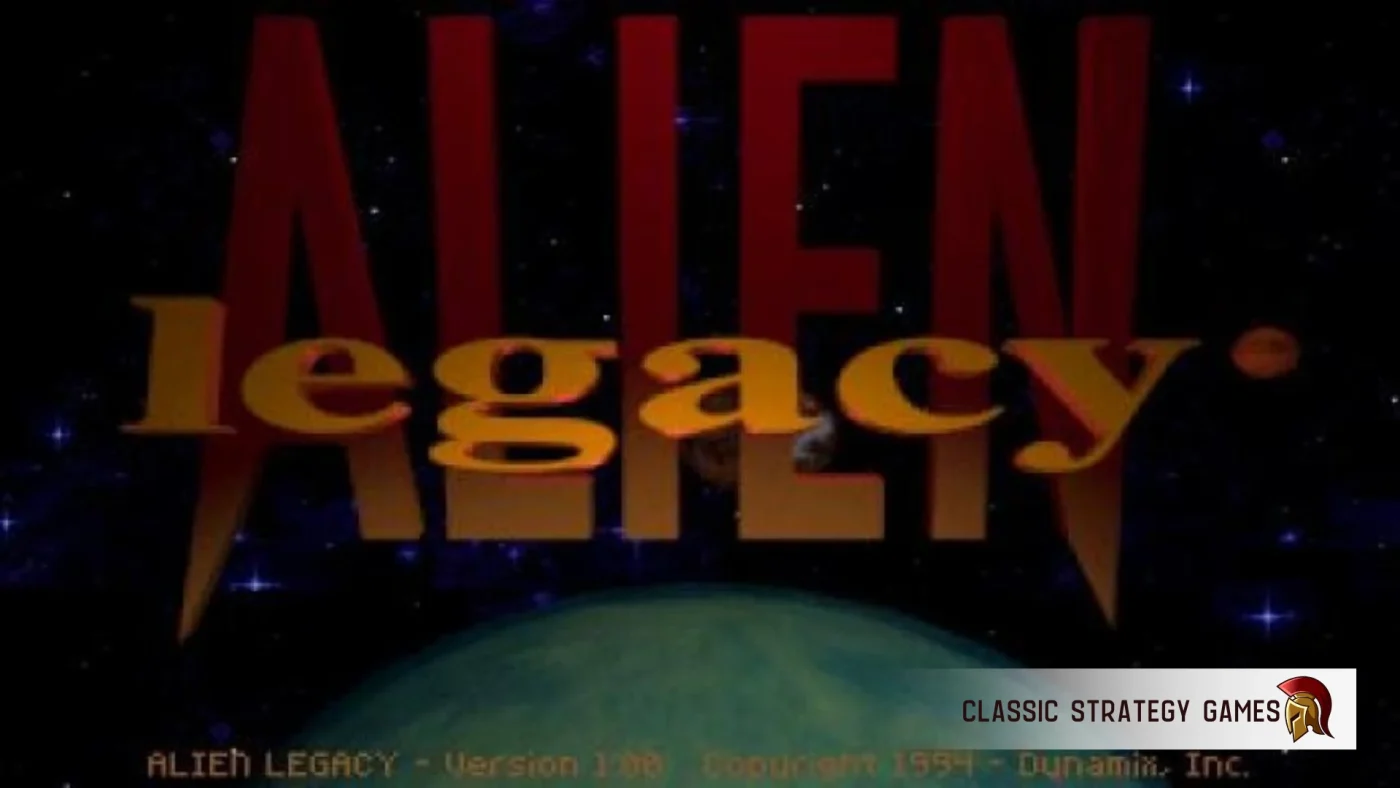Developed by Dynamix and published by Sierra On-Line, Alien Legacy debuted in 1994 as a blend of real-time strategy, resource management, and science fiction storytelling. Set in a distant future, the game tasked players with colonizing a new star system while unravelling a mystery left behind by a failed previous mission. With its focus on exploration, resource management, and narrative-driven gameplay, Alien Legacy stood out as an ambitious and innovative title.
While it wasn’t a massive commercial success, the game’s depth, atmosphere, and unique approach to storytelling earned it a loyal following among strategy and sci-fi enthusiasts.
A Sci-Fi Setting with a Mysterious Premise
The story of Alien Legacy began with the player commanding the UNS Calypso, a colonization ship sent to the Beta Caeli system after the Earth was devastated by resource shortages. Upon arrival, players discovered the wreckage of the UNS Tantalus, a ship that was supposed to prepare the star system for colonization. The fate of the Tantalus crew and the events that transpired in the system became central to the game’s narrative.
This premise created a strong narrative hook, intertwining the tasks of building a successful colony with uncovering the mystery of what happened to the Tantalus. Players encountered abandoned facilities, strange alien artifacts, and cryptic logs, which advanced the story while adding tension and intrigue.
Colony Management and Resource Balancing
At its core, Alien Legacy was a colony management game, requiring players to establish and maintain multiple colonies across different planets and moons within the star system. Each celestial body presented unique challenges, such as varying levels of habitability, resource availability, and environmental hazards. Players had to carefully balance colonist needs, including food, housing, and morale, while ensuring sufficient production of critical resources like metals, fuel, and energy.
Research and development played a key role in colony expansion. Players could unlock new technologies to improve life support, mining efficiency, and defence capabilities, as well as develop advanced spacecraft for exploration and resource transport. This emphasis on technological progress encouraged players to think strategically about how to prioritize research efforts while managing limited resources.
Exploration and Story Progression
Exploration was a key gameplay element in Alien Legacy, as players sent out spacecraft to survey planets, moons, and asteroids. These missions often revealed valuable resources, ancient alien structures, or new clues about the fate of the Tantalus mission. The game rewarded curiosity, as uncovering secrets advanced the narrative while providing tangible benefits for the player’s colonies.
The mystery-driven gameplay was enhanced by time-sensitive events. As players expanded their colonies and conducted research, they encountered scripted scenarios that could significantly impact the game’s progression. Some of these events presented moral dilemmas or required quick decisions, adding depth to the storytelling and reinforcing the sense of being part of a larger, evolving narrative.
A Tense Blend of Strategy and Survival
While Alien Legacy emphasized colony management, it also featured a survival element. Players had to contend with environmental hazards, limited resources, and growing threats as the story unfolded. The mysterious presence of alien forces added an element of danger, pushing players to develop defensive technologies and fortify their colonies.
The game’s real-time progression, with the ability to pause and issue commands, added a layer of urgency to decision-making. Poor planning or mismanagement could lead to dire consequences, such as resource shortages or declining colonist morale, making every decision critical to long-term survival.
Visuals, Sound, and Atmosphere
For a game released in 1994, Alien Legacy boasted impressive visuals. Its planetary backdrops, colony screens, and interface were detailed and functional, immersing players in the sci-fi setting. The game’s atmospheric soundtrack and sound effects complemented the gameplay, enhancing the sense of isolation and mystery as players explored the Beta Caeli system.
The interface, while somewhat complex by modern standards, provided all the tools necessary for managing colonies, tracking resources, and issuing exploration orders. Players who took the time to learn its intricacies were rewarded with a highly engaging experience.
Legacy and Reception
While Alien Legacy wasn’t a commercial blockbuster, it received praise for its narrative depth, strategic gameplay, and unique approach to colony management. The combination of storytelling, exploration, and resource balancing set it apart from other strategy games of its time, making it a standout title for fans of science fiction and simulation.
The game’s blend of real-time strategy and narrative-driven gameplay foreshadowed elements seen in later titles, such as Sid Meier’s Alpha Centauri and Surviving Mars. Though it remains a niche classic, Alien Legacy is fondly remembered by those who experienced its compelling mix of strategy and storytelling.
For players seeking a game that marries colony management with a rich narrative and a touch of mystery, Alien Legacy remains a hidden gem in the history of strategy gaming.


